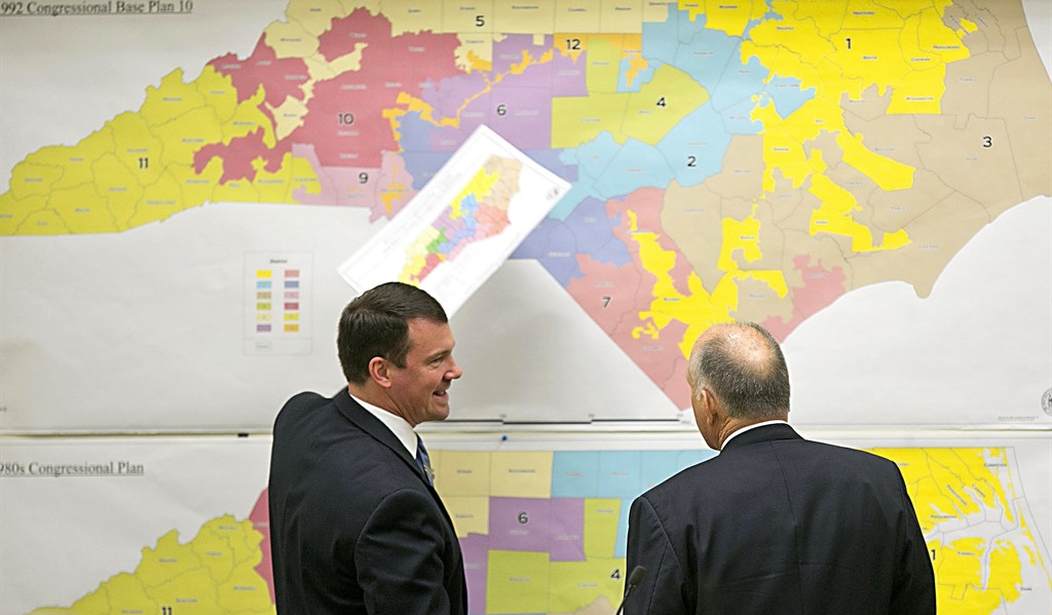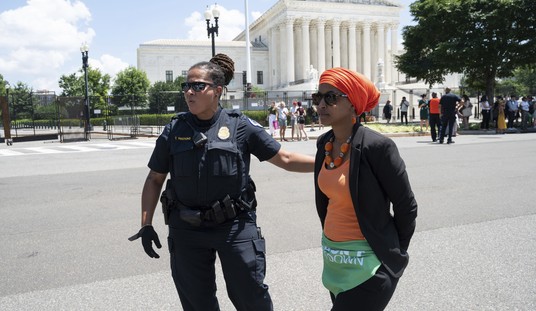California’s rabid special interests and corruption problems rear their ugly head early on with the so-called Independent Redistricting Commission:
California voters created an independent redistricting commission to stop lawmakers and powerful interests from drawing gerrymandered congressional and legislative districts that consolidated their power at the expense of fair representation.
That commission is now accused of routinely flouting the law by holding closed-door meetings and other acts that threaten to undermine its impartiality as it prepares to draw new maps.
“The commission‘s ‘outreach’ efforts are being conducted in violation of the transparency provisions of” state law, Charles Munger Jr., who funded the propositions that created the commission, wrote in a May 7 letter to the body. “It is important both that this stop and that it not set a precedent for how the commission conducts itself.”
The LA Times continued:
Among Munger’s concerns: commissioners routinely meeting privately with various parties – including legislative representatives, Google and Common Cause – without public notice, opportunity for public input or a record of the meeting. He also says the commission‘s hiring of a law firm that has long represented the state Legislature creates a conflict of interest, and he faults the body for failing to make public records, video and transcripts available in a timely manner.
The Commission has been fraught with challenges from the beginning, most recently complaints from the Latino Caucus Mafia, who feel that their only having four out of the 14 spots on the commission means they are underrepresented:
Four of the 14 spots on the California 2020 Citizens Redistricting Commission are held by Latinos. That’s 29% percent of the commission.
The share disappointed Latino leaders who wanted the commission to more closely resemble California‘s demographic makeup. Latinos represent 39.4% of California‘s population.
“We shouldn’t have to beg for a spot at the table,” said former Senate President pro Tem Kevin de León, D-Los Angeles.
When it comes to redrawing the boundaries of the State, everyone is playing sleight of hand, particularly now that California has lost one Congressional seat—dirty tricks are, once again, afoot.
It’s 2010 all over again, when Republican Governor Arnold Schwarzenegger attempted the same “bipartisan”, “independent” effort to redraw the lines. What happened was a bait-and-switch by the National Democrat Party and the Labor Unions to massage the lines in their favor. We have seen the result of this with the wholesale progressive takeover of the State in the last 10 years, along with the stranglehold of its Super Majority on the Legislature.
ProPublica blew the lid off of the scheme back in 2011 when the National Democrat Party created astroturf lobbying groups who masqueraded as community organizers. These groups successfully gaslighted the Commission into creating maps that favored incumbent Democrats in the California Legislature. As per usual, actual community organizations, the poor, and minorities were adversely underrepresented by the new map:
The citizens’ commission had pledged to create districts based on testimony from the communities themselves, not from parties or statewide political players. To get around that, Democrats surreptitiously enlisted local voters, elected officials, labor unions and community groups to testify in support of configurations that coincided with the party’s interests.
When they appeared before the commission, those groups identified themselves as ordinary Californians and did not disclose their ties to the party. One woman who purported to represent the Asian community of the San Gabriel Valley was actually a lobbyist who grew up in rural Idaho, and lives in Sacramento.
After the publication of the LA Times article, the California Citizens Redistricting Commission issued a detailed statement refuting the allegations, confirming its commitment to transparency and inclusiveness, and alleging it is not in violation of any laws.
CA's redistricting commission @WeDrawTheLines releases response to the allegations in the Munger letter. Clarifies that subcommittees with two members are not subject to the Bagley-Keene Act, CA's law governing public meetings. https://t.co/ortKU9KhsM pic.twitter.com/Nhnk53qh8D
— Tiffany Stecker (@TiffanyStecker) May 14, 2021
Committees that have only two members and are purely advisory are not subject to the requirements of the Bagley-Keene Open Meetings Act. Government Code Section 11121 (c) clearly states that advisory committees are only subject to Bagley-Keene if they have three or more members. The Office of the California Attorney General has made this clear in its Handy Guide to the Bagley-Keene Open Meetings Act, which states “[i]f an advisory committee . . . has only two members, it is not covered by the Bagley-Keene Act.”
If this Los Angeles Times story does anything, it at least shines early scrutiny on the Commission’s flaws and blind spots. What may or may not come of that is anyone’s guess.















Join the conversation as a VIP Member